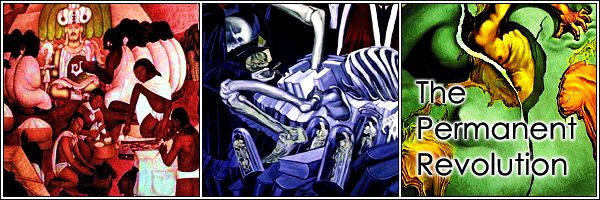Michael Kinsley vs. Social Sciences (and U.S. Cuba Policy)
Michael Kinsley is my favorite journalist and political commentator around. This is so not so much on the basis of his articles, which are usually good but not great. Nor is it because of his trailblazing founding and editing of the first (?) online magazine Slate, although that usually provides a lot of very diverse and interesting stuff.
No, I was charmed with Kinsley's numerous appearances on Charlie Rose in which he is, from Clinton to Obama, an unflappable voice of reason and skepticism. You see him duke it out over the years from his writing a book on the American people in the 1990s entitled Crybabies, his preaching the gospel of combing media and internet (when it wasn't so fashionable, whereas now it seems so obvious to us), and his wry commentary of the Bush years. And too, one sees him in an ostensibly losing (and for the longest time, secret) struggle with Parkinson's disease, to the point of significantly affecting his mannerism and speech, which he has not let negatively affect his life. He defected from Washington D.C. to continue his career in Seattle, Washington (substituting Microsoft and hiking for Crossfire and going to New York shows).
Kinsley doesn't go onto Charlie Rose often enough, so I do read his articles. And I really enjoyed this week's piece. It's a commentary on experiments in social sciences and policy towards Cuba. The barbs on economics and political science are ones I have thought myself:
I hope to see more of Kinsley's mild-mannered acid wit in the future!
No, I was charmed with Kinsley's numerous appearances on Charlie Rose in which he is, from Clinton to Obama, an unflappable voice of reason and skepticism. You see him duke it out over the years from his writing a book on the American people in the 1990s entitled Crybabies, his preaching the gospel of combing media and internet (when it wasn't so fashionable, whereas now it seems so obvious to us), and his wry commentary of the Bush years. And too, one sees him in an ostensibly losing (and for the longest time, secret) struggle with Parkinson's disease, to the point of significantly affecting his mannerism and speech, which he has not let negatively affect his life. He defected from Washington D.C. to continue his career in Seattle, Washington (substituting Microsoft and hiking for Crossfire and going to New York shows).
Kinsley doesn't go onto Charlie Rose often enough, so I do read his articles. And I really enjoyed this week's piece. It's a commentary on experiments in social sciences and policy towards Cuba. The barbs on economics and political science are ones I have thought myself:
Among the social sciences, economists are the snobs. Economics, with its numbers and graphs and curves, at least has the coloration and paraphernalia of a hard science. It's not just putting on sandals and trekking out to take notes on some tribe.
Political science, meanwhile, announces its defensiveness in its name. If it really were a science, it wouldn't need to say so quite as adamantly, would it? The difficulty with social science is that it's about people, who tend to be fickle. Political science is usually about people in large groups. Parties. Societies. Nations. If you want to test a proposition about, say, the relationship between democracy and free trade, you can't just set up a bunch of countries to experiment with. You have to take what you find, and there will always be some exception or complication to defeat your pretensions to science.It then goes on to argue how we have valid experiments in foreign policy: we've tried every different thing under the sun to eliminate communist regimes. Some things seem to work, others don't, and while hardly original, Kinsley suggests the longevity of Cuban Communism suggests something about the effectiveness of our policies towards that country..
I hope to see more of Kinsley's mild-mannered acid wit in the future!
Labels: Cuba, Michael Kinsley, Social Sciences



0 Comments:
Post a Comment
<< Home